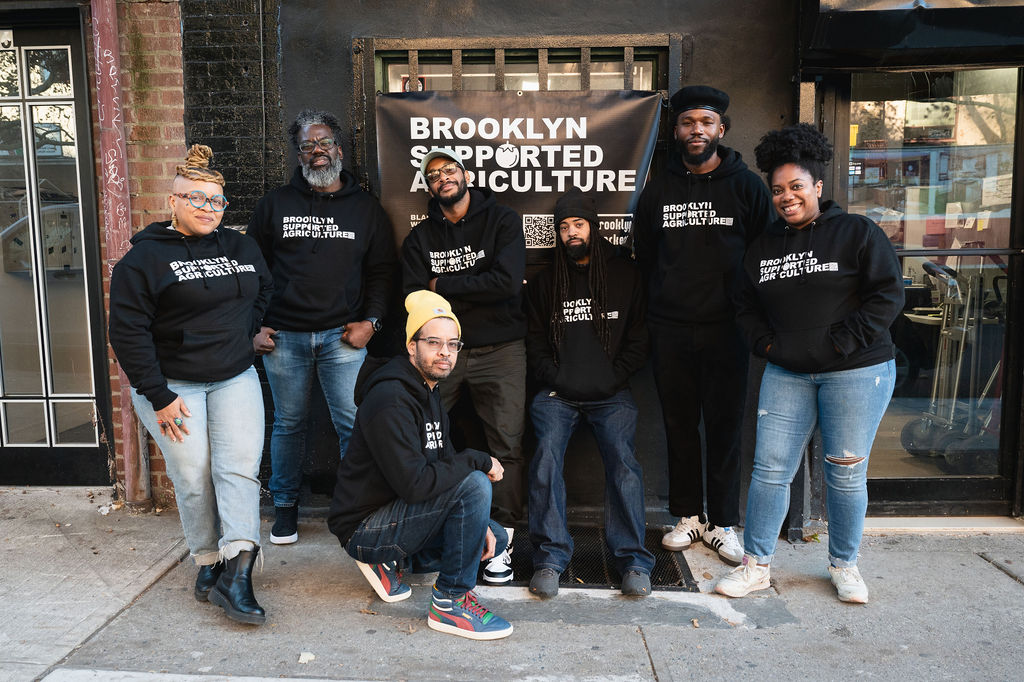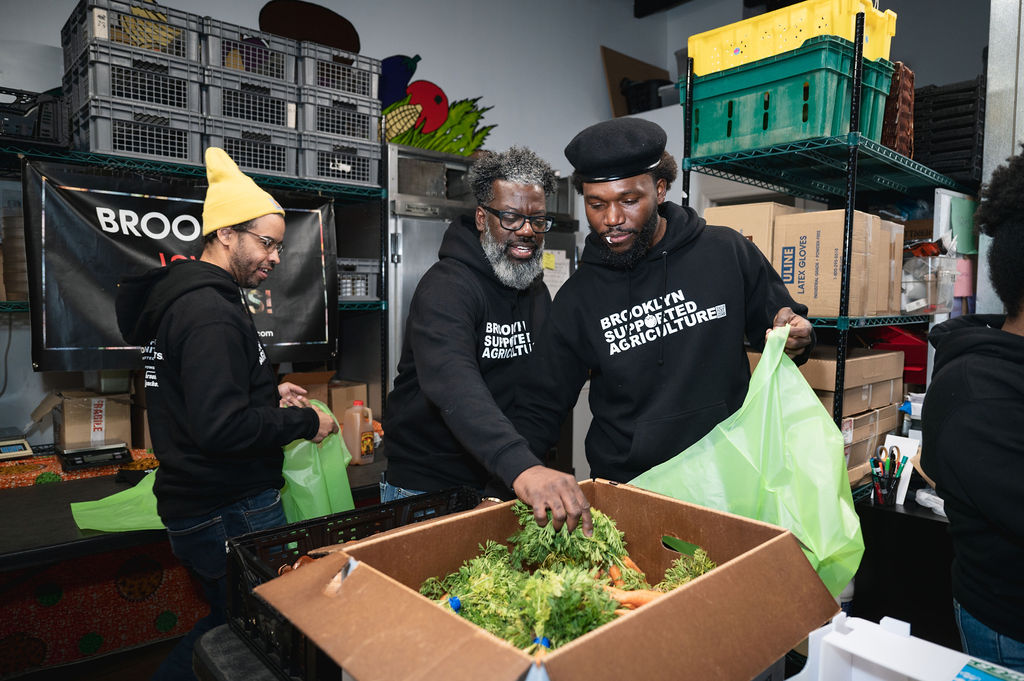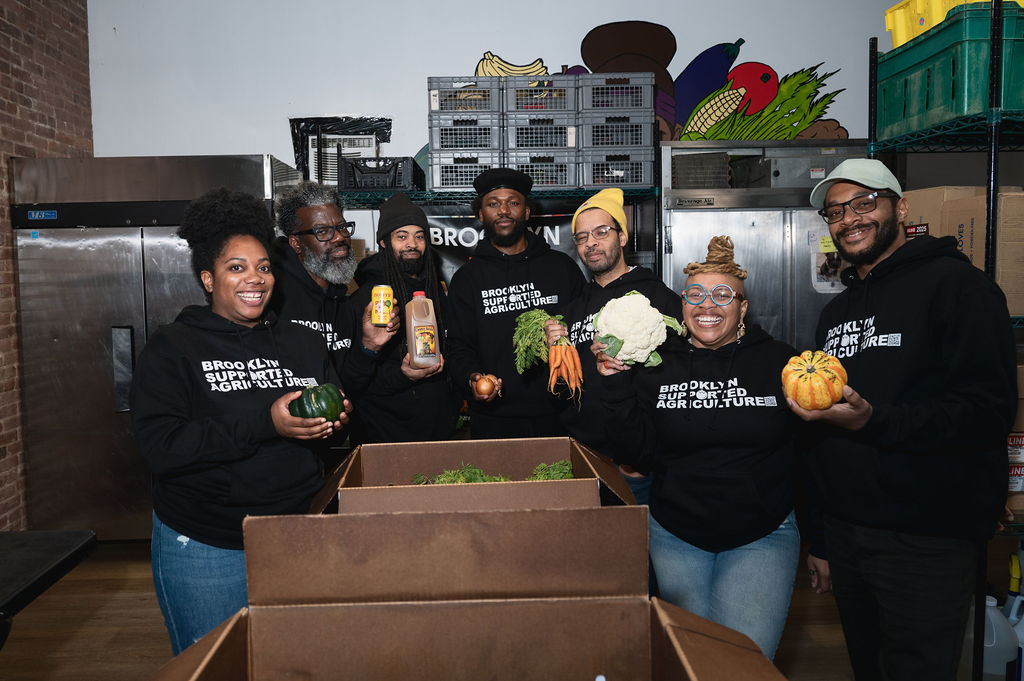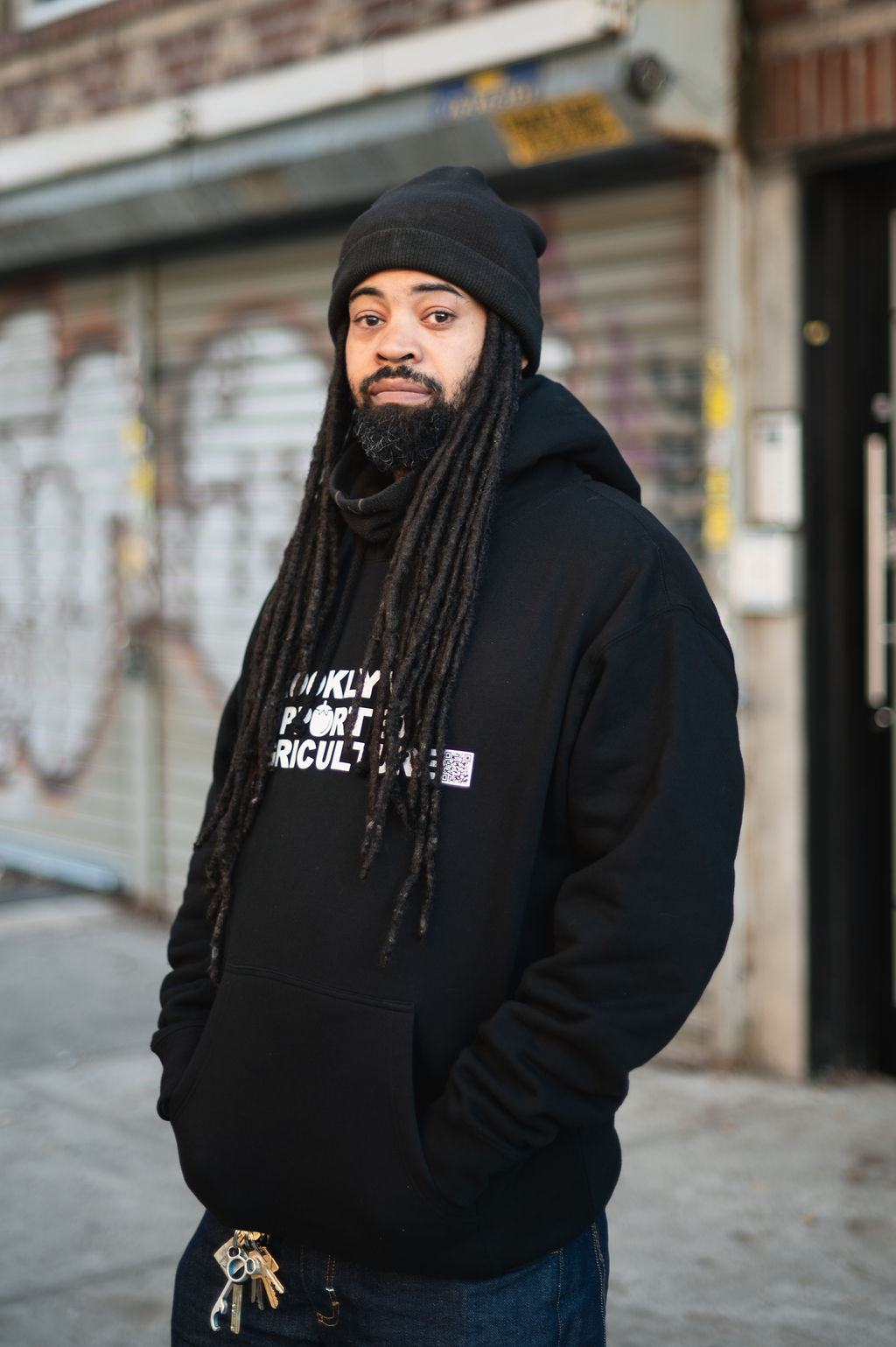Steph Wiley has been an entrepreneur almost as long as he’s been a New Yorker—and he’s been a New Yorker his entire life. At first, Steph owned a dog-walking business in lower Manhattan for more than 10 years before starting a community organizing business with his partner. In addition to being an entrepreneur, Steph is also an artist and activist. According to him, in Brooklyn, all of those different circles overlap with each other in some way, and many of his professional connections have come about simply by him being in the community—being in the community and working out of the same building.

In 2013, an online, digital farmshare company opened in the same building that Steph and his partner managed. Through that connection, Steph was hired as the company’s hub manager. He grew with the company, and for the first time in his life, he realized how much he loved being connected to the farms.“Eating vegetables from the store is just a different experience,” he said. “But when you get food from the farm, it literally changes the chemical makeup of your brain. That was really exciting for me and really inspirational, and I just went with it.”
Although the digital farmshare company eventually shuttered, through that experience, Steph made close connections with colleagues and learned about worker-owned, cooperative business models. That’s what ultimately led Steph and his cousin, Shawn Santana, a chef and restaurant owner, to launch Brooklyn Packers in 2016. Brooklyn Packers is a worker-owned, Black-led food sourcing, packing, and distribution cooperative working to form a conduit between farms and New York City and to build what it calls “Brooklyn food sovereignty.” Brooklyn Packers is headquartered in the Bed-Stuy neighborhood. The company currently has two worker-owners and six independent contractors. All worker-owners receive a salary commensurate with their roles and responsibilities and share in a percentage of the profit.
In the early days of Brooklyn Packers, Steph and his team primarily did operations, including sourcing, packing, and deliveries, for online grocery-delivery businesses. However, after a few years of “getting really good at that,” Steph said, Brooklyn Packers decided to start its own farmshare, Brooklyn Supported Agriculture, which allowed the company to establish deeper relationships with farmers and farms. That’s when Steph quickly realized that his community organizing, artist, and activism circles also overlapped with New York City’s farming community. “Through those relationships,” Steph said, “we were like ‘what if we do things differently and try to mainly get our produce from Black- and Brown-owned farms and farmers. That became our goal.”
Importantly, Steph and his team didn’t want to establish transactional relationships with farmers. Instead, Brooklyn Packers set out to forge meaningful relationships with small, sustainable food businesses in their local economy, with a preference for worker-owned cooperatives and women-, queer-, and POC-owned farms. Steph was also able to learn about and meet farmers thanks to his involvement with Black Farmer Fund, Just Food, and various events and panels. According to Steph, the co-op’s intentional approach to growing its network of farmers has resulted in numerous personal friendships.
That’s one reason why Steph came to co-launch Mumbet’s Freedom Farm, a BIPOC worker-owned cooperative farm in Western Massachusetts,“Farming was an invaluable experience,” Steph said, “and so I connect with farmers in a different way. I know all aspects of the chain, from getting it out of the ground to packaging to distribution to retail. Farming wasn’t my calling, but what I do love is the pathway from farm to plate and figuring out creative and engaging ways to do that.”
Co-Ops Supporting Co-Ops
Over the years, as Steph and his fellow worker-owners grew Brooklyn Packers, they had the support of Brooklyn Cooperative Federal Credit Union (Brooklyn Co-op), a community credit union serving central and eastern Brooklyn. Brooklyn Co-op was founded in 2001, and it’s a certified community development financial institution (CDFI), Minority Depository Institution, and a CNote Impact CashTM partner. CNote invests Impact Cash® dollars in mission-driven and FDIC- and NCUA-insured partners like Brooklyn Co-op, generating returns on institutional investors’ cash allocations while supporting financially underserved communities across the country.

Steph first learned about Brooklyn Co-op when the CDFI credit union moved into the same building where he initially got his start with the digital farmshare company. Because Steph is passionate about co-ops, he and his partner opened a personal bank account at Brooklyn Co-op, as did some of Brooklyn Packers’ other worker-owners. Although Brooklyn Packers has never received a business loan from the CDFI, the credit union provided Brooklyn Packers with tax help. Additionally, Steph has attended Brooklyn Co-op’s financial literacy courses and home-buying classes. “I try to use them for all the things,” said Steph. “It makes a lot of sense. The staff is really friendly, and some of them are actually members and clients of ours too.”
Today, in addition to handling bulk food acquisition, packaging, and transport for clients, Brooklyn Packers provides produce to nonprofits that supply food pantries. In 2024, thanks to contracts with the United States Department of Agriculture, Steph said that Brooklyn Supported Agriculture will coordinate the movement of produce from its network of farm sources into roughly 27 pantries in and around central Brooklyn. In other words, this year, Steph and his team are anticipating moving approximately $1.5 million worth of food.

Going forward, Steph would like for Brooklyn Packers to diversify away from government contracts—something the co-op is already starting to do. Later this year, Brooklyn Packers is planning to open its first retail space, which will be “part retail, part commons, part place to hang out,” Steph said. In addition to the retail pilot, the company is expanding its fleet of refrigerated vans, which travel from nearby farms to pick up produce and bring it into the city. The co-op is also investing in marketing for the first time so that it can creatively engage with Brooklynites. Lastly, Brooklyn Packers is making it easier for community members to directly purchase produce from its website using sliding-scale pricing.
Given the co-op’s current momentum, Steph and his team are excited about Brooklyn Packer’s future, which they hope will include a larger distribution center, more retail stores and markets, and even their own product lines. “Sometimes, it feels a little overwhelming,” Steph said, “but we are excited to grow the business, expand the team, and bring on people who have incredible skills so that we can create something together. We’re about to make a major impact in how people get food and where that food comes from in central Brooklyn.”
*CNote Group, Inc. is not a bank, a credit union, or any other type of financial institution. CNote is not a registered investment advisor with the Securities and Exchange Commission (SEC) or a broker-dealer authorized by the Financial Industry Regulatory Authority (FINRA). CNote is not a legal, financial, accounting or tax advisor. CNote does not negotiate interest rates. Impact Cash is not a security or investment. Impact Cash® deposits are insured by the FDIC or NCUA, subject to the terms and conditions of the Impact Cash® agreements. We encourage you to consult with a financial adviser or investment professional to determine whether or not the CNote platform makes sense for you.This information should not be relied upon as research, investment or financial advice. This material is strictly for illustrative, educational, or informational purposes and is subject to change.


